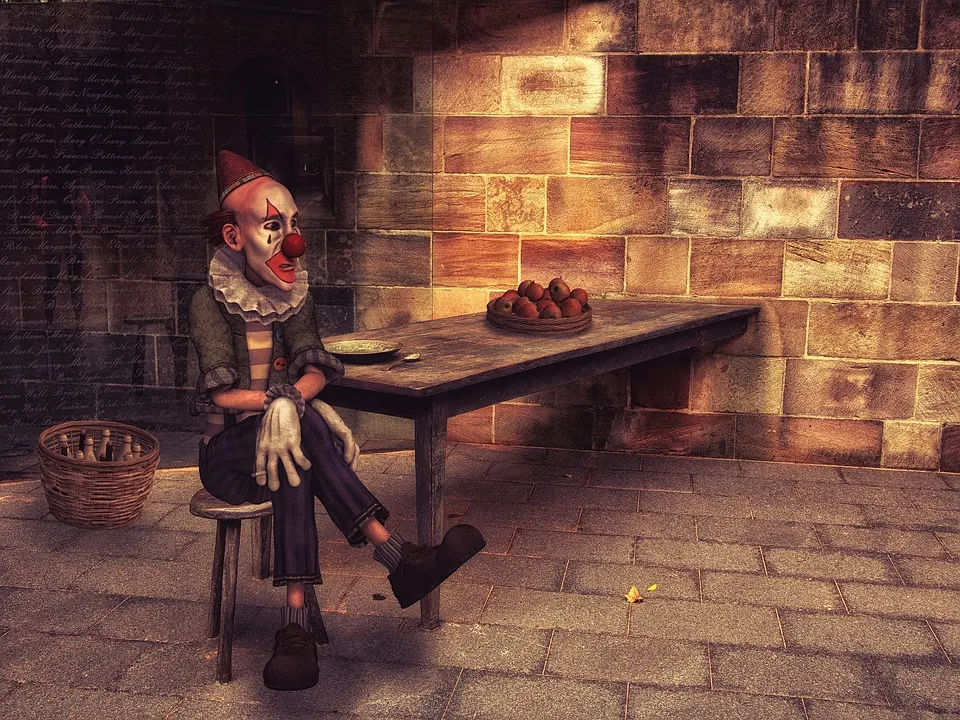"The inability to comprehend comprehension is, indeed, a form of comprehension," a statement spoken with a paradoxical intention. It was uttered by our ancestors to establish the boundaries of human perception and, thus, dissuade people from delving into the divine. Theologians have used it as proof of the mind's limitation - and still do - as a means to persuade the common people to accept all teachings and beliefs that are imposed upon them.
As knowledge's borders shrink, the space of conviction expands. And because you are incapable of understanding, you must believe without questioning. This is how the phrase "the limits of perception" is used, as an apologetic tool to safeguard beliefs and instil them in the hearts of the faithful. Originally, it was a means to establish a system that goes beyond the religious realm, penetrating the cultural, social, and political spheres."
As for our happy Malincolnian friend, he understands the issue of the limits of knowledge in a way that is different from the understanding of the theologians and their followers. He turns their goals upside down, so if they seek certainty and stability, our friend seeks constant anxiety and infinite doubt, especially towards those "big questions" that perplex the world and occupy people: starting with gods, magic, and spirit, through history, reason, self, morals, justice, and happiness, and reaching geopolitics, strategy, and conspiracies that are plotted and major policies that are formulated far away...
Standing amazed, our friend is far away from all these questions,..., until he finally admits - after exhausting contemplation - that he cannot grasp the knowledge of all these issues because many things stand between him and them, especially the mystery of these issues and the shortness of life. Thus spoke the wise Protagoras in the same position regarding the issue of the existence of the gods.
Contemplation by the happy philosopher, Happy Melancholic, in a previous context led to the understanding that human perception is based on a representation of the world, a representation governed by multiple constraints that lead to delusion. This is because the world, as it exists in itself, apart from consciousness, can only be perceived through an inherently subjective consciousness, surrounded by imagination, desire, dream, and whim.
This consciousness is individual and immersed in subjectivity, and therefore cannot coincide with the consciousness of another. Therefore, our friend is talking about human beings with the highest definition and not intending to use the term loosely.
The individual human being is the measure of all things, and the wise Protagoras has previously stated that "Things are what they appear to me to be, and they are what they appear to you to be, and you are a human being and I am a human being." Moreover, every issue in the world can be subject to a set of judgments that are equally balanced in positivity and negativity by returning to the perspective of the observer and the strength of the arguments that they present.
The knowledge that a person has of oneself and of the surrounding world appears to be limited, and cannot be fully encompassed as a comprehensive whole. Rather, one's share of this knowledge does not exceed scraps and torn guesses. So how does the Happy Melancholic contemplate himself in the face of the world, given his limited knowledge? And how does he confront those great questions that cannot be avoided, some of which are present with great force in the most intimate details of his life?
The period between birth and death, in our author's view, is nothing more than a heavy-shadowed joke that should not be taken too seriously. Therefore, the management of life's questions should be done partially, each according to their own situation, mood, and circumstances, rather than trying to find definitive answers or pretending to construct frameworks that claim to encompass all that exists and should exist.
In fact, some issues or questions may require a carefree and mocking indifference, as not caring can be a satisfactory answer to many of those heavy jokes that people consider as issues that only a structured society can solve. Our friend questions the need for a structured society and wonders whether life would be affected if it were structured or not.
Agnosticism is a very noble existential position, a wise stance taken by the Happy Melancholic amidst his anxiety, where he found his ethical salvation from all the burdens, pains, and contradictions of the world. Through it, he attained tranquillity that returns him to that absolute impotence, where a terrifying silence reigns, a complete suspension of judgment, and a despair that is triumphantly ignorant of human knowledge.
To say in a confident Socratic tone "all I know is that I know nothing," to renounce meaning, to be economical with goals, to acknowledge our ignorance, to refrain from judgement, to suspend far-reaching questions; these are the existential virtues sought by the Happy Melancholic.
They lead him to a reassuring form of scepticism. But how can doubt be reassuring? This is the paradox our protagonist faces, the equation that governs his existential path. Or perhaps we should ask from the outset: how can Melancholia - a state of severe melancholy - be happy?
Previous parts
The Happy Melancholic Part 1: How Can the Melancholy Endure Their Stay in the World?
The Happy Melancholic Part 2: Existence is a Burden: the Meditations of an Absurd Being
The Happy Melancholic Part 3: About the Genealogy of Evil

